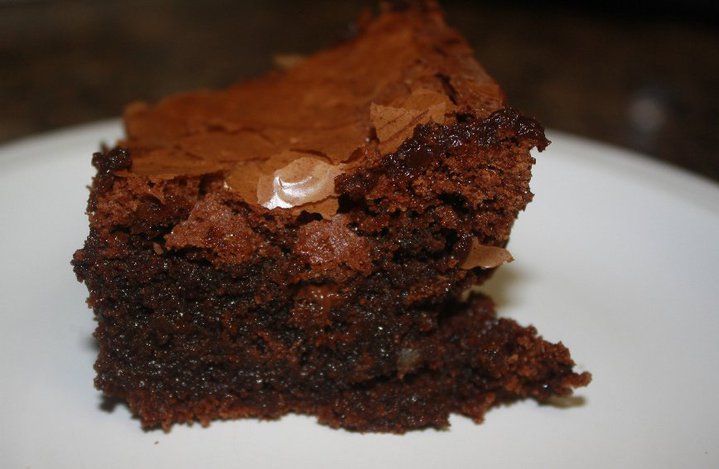Two of my favorite topics. Food – I love to cook, buy, bake, talk about, read about all things food. And yes, that includes eating out at all sorts of local dining establishments. It isn’t always fun to cook for one (since I’m single), and I can use the time eating out to eat with friends and broaden my food perspective. Like just the other day – tried a new sushi place with a friend and during dinner we discussed Paul David Tripp’s book War on Words.
Feminism – no, I’m not a feminist – but I love to study it and the effect that culture has on women and the home and the way God has created women to be. If you want two books to read about what I’m referring to: Mary Kassian’s Feminist Mistake and Carolyn McCulley’s Radical Womanhood.
How are the two brought together? Read the following quotes from different articles I’ve been reading:
“How do we both scale the career heights and bake our own bread?” – Jennifer Jeffrey
“We watch cooking shows on TV but we cook very little. We’re seduced by convenience. Who knew liberation would be found in a kitchen cupboard full of produce, not purses. Sure, women have been unfairly stuck with the brunt of domestic labor for a long time in a culture that has deemed it lower status than say, working in an office. Stepping away from the hearth is a form of rebellion and liberation and a way to gain more cultural status. This idea…that liberated women don’t prepare food…is part of the Sex and the City cultural hangover. Carrie Bradshaw, of course, famously used her oven as a shoe cupboard far before Grace, as a kind of feminist triumph. She likes sec and (therefore)doesn’t have to cook. Men come across as evolved, sexy, and creative when they mix things up in the kitchen. But women seem stuck in Leave it to Beaver land when they step in front of the stove: domestic suckers who aren’t paying enough attention to their ambition or their libidos.” – Vanessa Richmond
“Why do women cook in the domestic sphere but male chefs reign in restaurant land?” – Cooking with Ideas
“Besides drawing women into the work force, falling wages made fast food both cheap to produce and a welcome, if not indispensable, option for pinched and harried families.” – Michael Pollan
“In a challenge to second-wave feminists who urged women to get out of the kitchen, Flammang suggests that by denigrating foodwork, everything involved in putting meals on the family table – we have unthinkingly wrecked one of the nurseries of democracy: the family meal. Pollan doesn’t question the notion that feminists are to blame for urging women to leave the kitchen, when one might imagine that those who left the aprons behind were thinking beings who made their own choice to leave, regardless of the persuasions of feminists and family alike.” – Anna Clark
What does all this matter?
In the rise of a foodie nation – which we are (food channels, competitions, magazines, restaurants, stores) – I also want to draw your attention to what it looks like for families and feminism.
Personal Testimony: I grew up in a non-traditional family. Both of my parents were (and still are) married. But, my mother wasn’t always able to do the “normal” mother things, so my brother and I would go grocery shopping, cook, prepare our breakfasts, and eat school lunches. I went to Publix with a check and a grocery list in 3rd grade. My Dad cooked. My Mom would sometimes cook. We would eat out before school basketball games. I learned how to cook early on. Now, I love to cook – but I would still rather cook for people than just myself. I want people to appreciate my cooking. So, if it’s just me – I’m going to make a salad or eat hummus and raw vegetables, or maybe even a bowl of light ice cream for dinner.
Now that I’ve gotten older, learned more, been around more people – I see food and cooking in a different light. I don’t see preparing food in a kitchen at your home for your family as a demeaning task or one that should only be done by the wife. Proverbs 31 does mention this: “She rises while it is yet night and provides food for her household.” (31.15) But, I don’t believe that means that if the husband cooks, then the wife is falling down on her wifely/motherly duties.
Here are two thoughts all these above-mentioned articles mentioned:
1. What has fast food (whether eating out or pre-packaged) done for the feminism movement? If you think back to when these TV dinners started really hitting the supermarket shelves (or fast food icons, etc) – it would be in the late 50s and on. Which came first – the feminism movement of the 60s and 70s or the rise of food? Is there a correlation – yes, but I don’t think its the driving correlation. As I walk through Harris Teeter or Whole Foods now – look at all the “organic” specialized TV dinner and prepared foods. So, not only do we have parents (both men and women) – but probably a majority of women – who are now trying to be the do-it-all-Mom (corporate exec, teacher, PTA superpower, and Mom, cook, cleaner, housewife extraordinaire) and they must have the convenience foods. There is no way to have it all. It can’t be done. Something will take a back burner. And maybe what is on the back burner – just foodie wise – is the health and nutrition of what you put in your mouth and on your child’s plate. This leads to unhealthy families (but that is for another blog).
2. Entitlement. We live in a culture now where we can get local, organic, grass-fed, cage-free, no pesticides foods. We have specialty shops like Whole Foods. We have Fresh Market. We eat non-processed foods or only plants. Is all of this good – sure. Is all of it a necessity? No. Women (yes, mostly women) think in terms of entitlement or status. During a conversation I had this morning – we think it’s a status to walk into our kid’s classroom holding our Whole Foods recyclable bag. How dare we bring in a plastic Food Lion or Aldi bag? Would anyone eat the food we brought if it wasn’t organic? And the question raised in one of the articles I read – does this “slow-food” culture (the return in politics and foodie circles to non-processed foods, grind your own wheat, bake your own breads, etc) really mean that women are giving up their careers and returning to the kitchen. I don’t think the argument can be made. I think it can be more made that as women/wives/mothers get more into culture and the world – they think they are entitled to more and better things (including their food). So, they will spend more money on gratifying self in the way of the Whole Foods salad bar and bulk bins. But, that doesn’t necessarily mean that their hearts are returning to a God-given love of the home and their children.
As Mary Kassian states in her book Girls Gone Wise, “Do you believe that treasuring Christ holds greater pleasure than sec, wealth, power, and prestige? Are you willing to forego worldly gratification?” Is shopping at Whole Foods and Fresh Market and local farms wrong – no, please don’t hear that. But, what is the heart behind your actions? Do you want to have it all? Do you want to be a status symbol? Do you want to be able to hang with the green, organic Moms who you think have it all together from the outside looking in? Or do you want to reclaim your role as a wife and a mother who’s best interest is her love for Christ and that she “looks well to the ways of her household and does not eat the bread of idleness.” (Prov 31.27)







